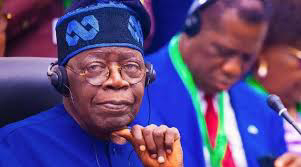In a recent and pivotal development in Nigerian politics, the Supreme Court has delivered a resounding verdict that could potentially reshape the political landscape. This verdict revolves around Atiku Abubakar, the presidential candidate of the Peoples Democratic Party (PDP), and his appeal against President Bola Tinubu. Atiku had sought to introduce fresh evidence into the case, but the Supreme Court, in a decision that sent shockwaves through the political arena, dismissed this application.The heart of the matter lies in the court's assertion that it lacked jurisdiction to grant Atiku's request for the introduction of new evidence.
The crux of the matter was the expiration of the constitutionally mandated time limit for such submissions. This decision has ignited fervent discussions and debates across the country, as the case has been closely watched by political pundits and citizens alike.Atiku's move to introduce fresh evidence was seen by many as a last-ditch effort to bolster his case against President Tinubu. This high-stakes appeal had garnered considerable attention and anticipation, with both sides fiercely defending their positions. Atiku's camp argued that the fresh evidence was crucial to the case and would unveil important details that could potentially change the outcome of the dispute. President Tinubu's supporters, on the other hand, vehemently opposed the introduction of this new evidence, citing constitutional limits and arguing that it was a tactical ploy by the opposition.The Supreme Court's decision has left both sides of the political divide in anticipation as they await the final verdict in this contentious battle. The court's determination that it had no jurisdiction to entertain the fresh evidence serves as a reminder of the stringent legal framework that governs such cases in Nigeria. It also underscores the importance of adhering to constitutional provisions in seeking justice through the legal system.As the judgment continues, the ramifications of this decision are far-reaching. It raises questions about the impact on Atiku's presidential aspirations and the broader implications for the PDP. The dismissal of the application to introduce new evidence could potentially reshape the political landscape in the lead-up to the next presidential election.This decision is a stark reminder of the intricacies and challenges that surround high-profile legal cases in the country. The Supreme Court, as the highest judicial authority in Nigeria, carries immense weight in its decisions, making each ruling a critical turning point in the nation's political journey.As the nation watches with bated breath, the outcome of this case will undoubtedly influence the future political landscape of Nigeria. The ruling party and the opposition are keenly observing the proceedings, with the hope of securing a favorable outcome for their respective candidates. The drama and suspense surrounding this case continue to captivate the nation, underscoring the importance of the rule of law and the role of the judiciary in a thriving democracy.





